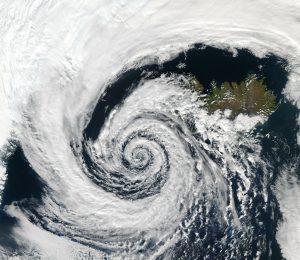
Hi, I’m Esther Mullens (formerly White), Assistant Professor of Geography at the University of Florida. Prior to this, I was a Postdoctoral Researcher with the South Central Climate Adaptation Science Center (SC-CASC). My background is in Atmospheric Scientist, with a Bachelors degree from the University of Reading (UK), and a PhD from the University of Oklahoma, school of Meteorology.
Meteorology is a STEM discipline, emphasizing the application of mathematical and physical concepts to the atmosphere and climate system, and multi-spatial analysis consistent with the strengths and mission of the department of Geography where I am housed. Within this discipline, my areas of specialization include: precipitation processes and dynamics – specifically in application to the evolution of mixed-phase winter storms, larger-scale processes that produce extreme and unusual precipitation (e.g., very heavy rainfall, heightened precipitation variability).
I also focus on general questions relating to both historical and future climate, including the use of ‘big data’ – or multidimensional gridded data that includes numerous meteorological variables, and multiple climate model output. Examples includes in the projections of regional trends, the analysis of climate variability regionally and locally, and the analysis of weather systems (for example – extratropical storms) under climate variability and change. This work requires advanced computational resources, and thus most of my work is done on the HiperGator system. One other aspect of my research is in climate science translation – for example, in how people interpret climate change information, and how we can better facilitate the transition of climate science into actionable data and information for stakeholders and professionals who work in climate adaptation.
My continued vision for research is to explore understudied topics within synoptic climatology, and to regionalize our findings to support end-user goals.


